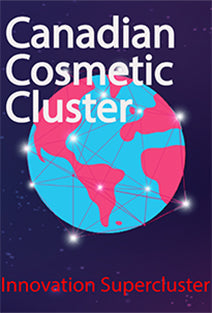EPA Issues Draft Policy to Reduce Animal Testing for Skin Sensitization

 |
| EPA Issues Draft Policy to Reduce Animal Testing for Skin Sensitization |
Non-animal Alternatives Available
EPA Administrator Scott Pruitt, said:“This draft policy is another step toward achieving EPA's goal of reducing the use of animals and increasing the use of cutting-edge science in chemical testing.”
The document, Draft Interim Science Policy: Use of Alternative Approaches for Skin Sensitization as a Replacement for Laboratory Animal Testing, describes the science behind the non-animal alternatives that can now be used (in vitro, in silico, in chemico) to identify skin sensitization. EPA currently requires these data to support pesticide registrations.
Result of Collaboration
Given the substantial scientific evidence and international activities supporting the new methodologies for skin sensitization testing, EPA will begin accepting these approaches immediately under the conditions described in the draft policy document. This draft policy is the result of national and international collaboration between the following:- The Interagency Coordinating Committee on the Validation of Alternative Methods
- The National Toxicology Program’s Interagency Center for the Evaluation of Alternative Toxicological Methods
- The European Union Reference Laboratory for Alternatives to Animal Testing
- Health Canada’s Pest Management Regulatory Agency
Another Milestone Fulfilled
Under Administrator Pruitt’s leadership, the Agency has made strides to overall reduce the use of animal testing. Last month, EPA fulfilled another milestone in the Frank R. Lautenberg Chemical Safety for the 21st Century Act, which amended the Toxic Substances Control Act (TSCA), when it released a draft strategy to reduce or replace the use of vertebrate animals in tests of chemical substances manufactured, processed, or imported in the United States.Leave a comment
Comments will be approved before showing up.
Also in MC2 BLOG

CBD For Pain - How Science Doesn't Meet The Marketing 2021, A Harvard Health Study
Currently, more than 50 countries have adopted medicinal cannabis programmes while Canada, Uruguay and 15 US states have legalized its recreational use, with Mexico and Luxembourg having political debates as to whether to follow that path. - UN News & UN CND (Commission on Narcotic Drugs)
This market shift toward the wider cultural acceptance of therapeutic cannabis is finding consumer brands rushing to market to fulfil marketplace demands with unsufficient scientific alignment. The reality is, and many science institutions (FDA, UK Commission, WHO) have agreed, that there has not been sufficient testing, length of study, nor broad-scope subjective data collected on longterm human effects that is available to us today.

Clean Green Silicones - Alkanes - C-13-15
Alkanes are plant based silicone alternatives that can be non-comodegenic and used in oil-free formulations, the material is ECOCERT approved, USDA certified bio-based. Additionally, as alkanes are organic compounds, it is fully biodegradable.
Alkanes can be sustainably and ethically sourced very easily and every established global market relies on eco-strategic partnerships with farmers and agricultural bases. By chemical nature, coconut and plant sugar derived alkanes are stable, which applies to formulating cosmetics for extreme conditions (such as intense climates or highly acidic formulas). Read more...

Innovation Superclusters - How They Will Help The Canadian Cosmetic & Beauty Industries
Innovation Superclusters are engines of economic growth. Built around industries of the future, Superclusters can accelerate transformation and drive system-level innovation. The Canadian Cosmetic Cluster is an internationally recognized hub that participates in global trade initiatives and provides service to local and international cosmetic companies. Collaborating, developing, supporting with academia, capital and national policy, Canada can become a centre for global Superclusters.

